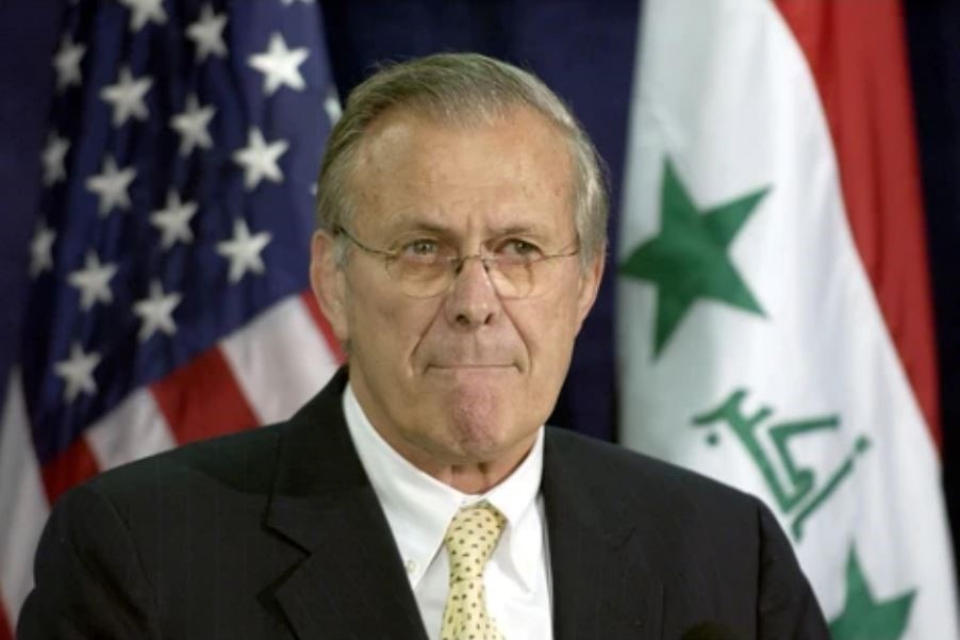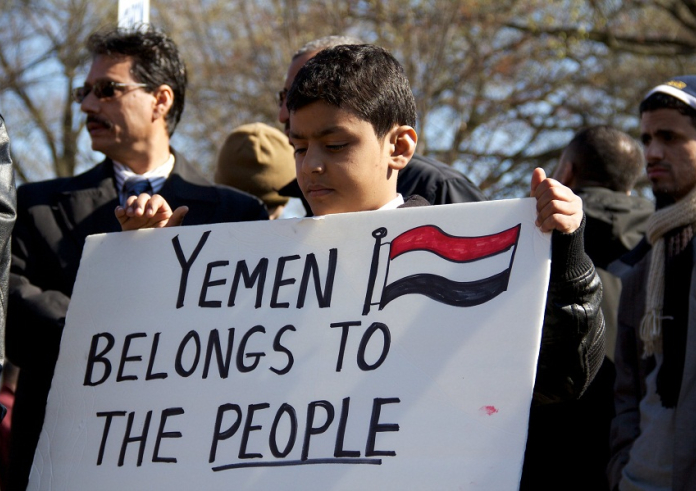by : Andrew Cohen
ORTLAND, Maine — On Aug. 23, they brought the body of Donald Henry Rumsfeld to Arlington National Cemetery on a flag-draped, horse-drawn caisson, accompanied by an honour guard. As a former serviceman and cabinet secretary, Rumsfeld was buried with full military honours. The ceremony was private.
Rumsfeld died on June 28, but his burial was delayed almost two months. As it happened, his funeral coincided with the chaotic U.S. withdrawal from Afghanistan, a 20-year misadventure of which Rumsfeld was prime architect.
No doubt Rumsfeld was a patriot. He earned his spot on Arlington’s hallowed ground — navy fighter pilot, four-term congressman, director of the Office of Economic Opportunity, ambassador to NATO, presidential adviser, White House chief of staff.
Most prominently, Rumsfeld was secretary of defense under Gerald Ford (1975-1977) and George W. Bush (2001-2006). In his two non-consecutive terms, he was the youngest to hold the office and the oldest, and the most prominent defense secretary since Robert McNamara ran the Pentagon in the 1960s.
In its length and breadth, then, Rumsfeld had a brilliant career in public life, which ended with his unceremonious resignation from cabinet almost 15 years ago. In the eulogies and obituaries from intimates and admirers, he was a giant of his generation, whom Henry Kissinger called “a special Washington phenomenon.” No wonder Rumsfeld was awarded the Presidential Medal of Freedom in 1977.
But there is a larger, less flattering truth about Donald Rumsfeld, and it doesn’t come from the florid lips of Dick Cheney, the former vice-president, Rumsfeld’s old ally. It is a legacy of duplicity, cruelty, arrogance, ignorance and ineptitude.
Iraq was his brainchild and his folly. He embraced the canard that Saddam Hussein was aligned with al-Qaida and that Iraq had weapons of mass destruction. Neither was true, but it was enough to launch an invasion and occupation, the greatest calamity in American foreign policy since Vietnam.
Having toppled a despot, the United States did not know what to do afterwards. It had no plan for Iraq’s post-war government. For this Rumsfeld was largely responsible, as he was for the use of torture and the abuse of detainees at Abu Ghraib near Baghdad and Guantanamo Bay in Cuba.
Iraq cost 4,400 American lives, and some $700 billion U.S., and by some estimates, much more. And, of course, hundreds of thousands of dead, most civilians.
But Rumsfeld — supported always by his persuasive acolyte, Paul Wolfowitz — never apologized. He was always the confident American with the megawatt smile, the brilliant résumé and the easy swagger: self-assured and dismissive.
Unlike McNamara, who came to see the folly of Vietnam and accept personal responsibility, Rumsfeld had no such humility. In his memoir, he regretted nothing.
And so it was with Cheney and George W. Bush. And in an earlier incarnation, Richard Nixon and Henry Kissinger, who kept the U.S. in Vietnam another four years, with no real advantage, at a cost of 20,000 American lives.
Most of the time, people of this ilk in Washington leave office with ribbons, medals and applause. They write memoirs which are less stock-taking than plea-bargaining and score-settling. They become corporate directors, making millions. Or elder statesmen, with a wall of honorary degrees, offering their thoughts on “the great game” or “the grand strategy.”
Accountability? Remorse? Guilt? Not much.
American has seen this movie in Vietnam. Then the self-assured, mistaken souls were McNamara, McGeorge Bundy, and Dean Rusk. They were called “the best and the brightest.” And in their assumptions, they were wrong.
Sometimes a president can check his misguided advisers. So it was with Harry Truman and recognizing the state of Israel, and firing Douglas MacArthur over Korea. Or, JFK ignoring his hawkish generals in the Cuban Missile Crisis.
Lyndon Johnson could not do that in Vietnam. He did not have the confidence to challenge McNamara, Rusk and Bundy the way JFK had.
George W. Bush could not, or would not, overrule Cheney, Wolfowitz, and Rumsfeld on Iraq. Now we know the cost.
In its length and breadth, then, Rumsfeld had a brilliant career in public life, which ended with his unceremonious resignation from cabinet almost 15 years ago. In the eulogies and obituaries from intimates and admirers, he was a giant of his generation, whom Henry Kissinger called “a special Washington phenomenon.” No wonder Rumsfeld was awarded the Presidential Medal of Freedom in 1977. But there is a larger, less flattering truth about Donald Rumsfeld, and it doesn’t come from the florid lips of Dick Cheney, the former vice-president, Rumsfeld’s old ally. It is a legacy of duplicity, cruelty, arrogance, ignorance and ineptitude.

















